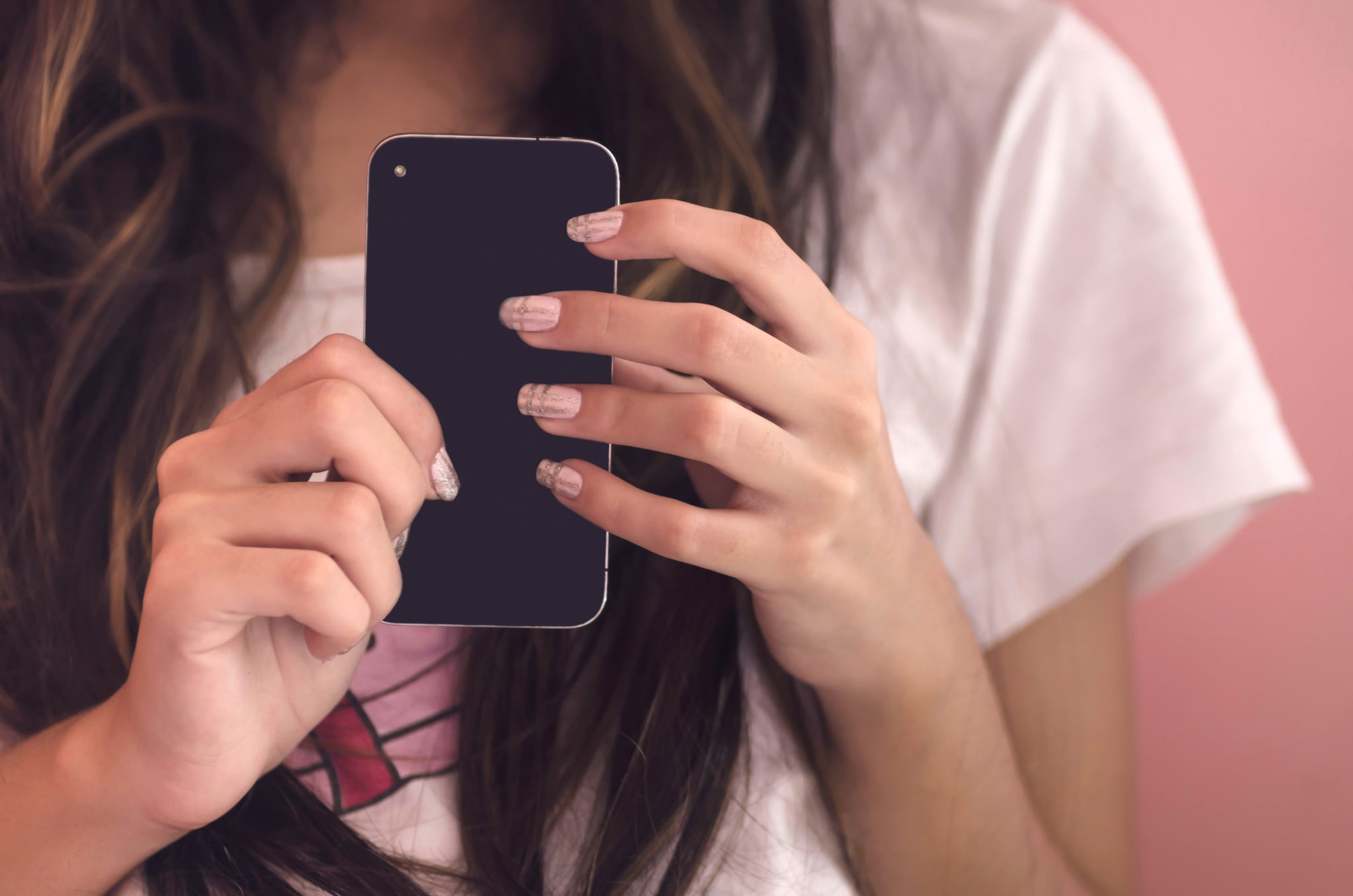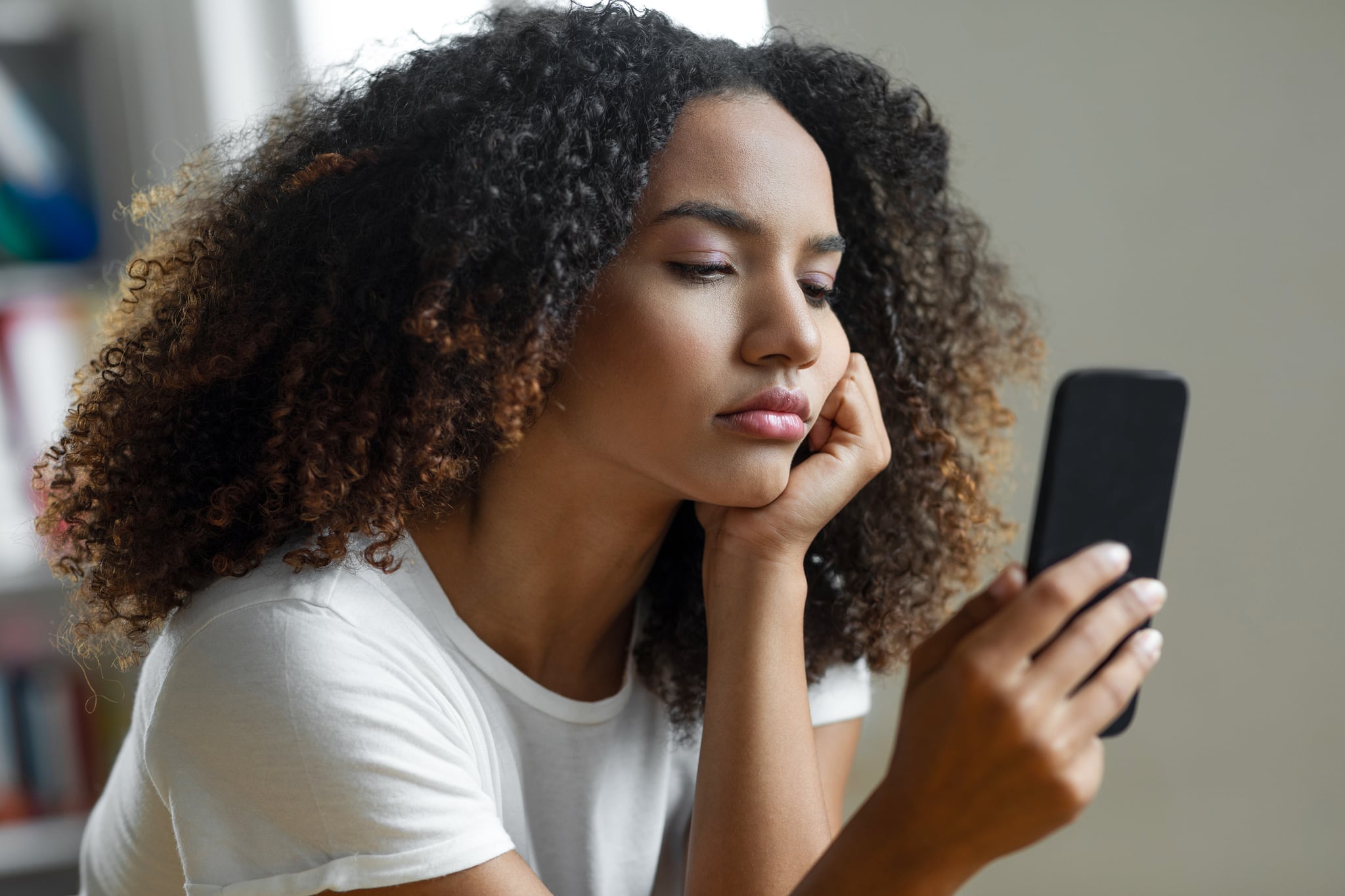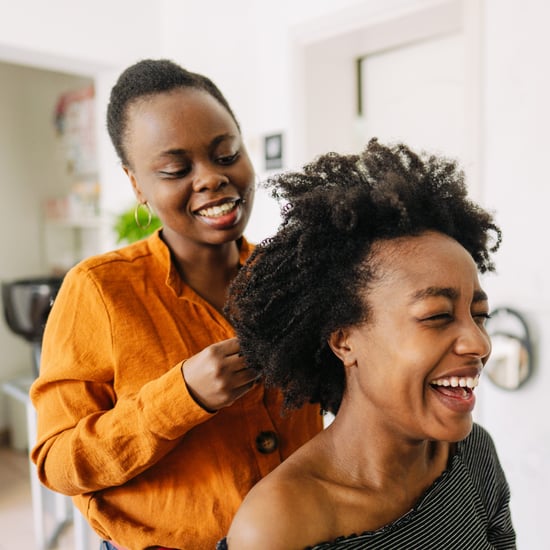Why I'm Giving Up Dating Apps — And Gen Z Are Too
Like Most of Gen Z, I'm Swearing Off Dating Apps

Image Source: Elizabeth Fernandez/Getty
In recent months, we've seen an increasing amount of headlines and stats everywhere about Gen Z abandoning dating apps. According to a recent study, more than 90 percent of Gen Z daters say they're feeling frustrated with dating apps. And the world's leading dating apps are beginning to feel the impact of this shift. Match Group, the company that owns Tinder, has reported that paying users fell by eight percent last year, or just under 10 million people. After evaluating my own relationship with dating apps recently, I'm joining my generation's anti-dating app revolution - and here's why.
Recently in the US, six dating app users filed a proposed class-action lawsuit against Match's Apps. Within it they accused Hinge, Tinder and other apps under Match of using "game-like" features that encourage "addictive" use. In the lawsuit they accused Match's Apps of "locking users into a perpetual pay-to-play loop," where they emphasise profit over feelings under the guise of helping users find relationships. They were also accused of "gamifying" user experiences.
In a statement, Match labelled the accusations within the the class-action lawsuit as "ridiculous," but the response from the internet has seen many people speak out about the way these apps have left them feeling manipulated.
@ameliasamson Dating apps are being sued and for good reason
♬ Chopin Nocturne No.2 Op.9-2(1391533) - 314P
I can relate to this feeling and as a 26-year-old woman who consistently used these apps, I'm done with them. As a generation, Gen Z are going through a romantic shift led by an anti hook-up culture - and it stems from feelings of fatigue from surface-level romantic connections. According to a survey conducted on 12,000 single people by event company Bored Of Dating Apps (BODA), 79 percent of people are more interested in finding a relationship than a casual hook-up in 2024.
This culture shift began in the pandemic, during a time where we were all forced to build slower, deeper connections without skipping bases. The Appinio Teengeist Report found that a significant amount of British Gen Zs prioritise building steady and meaningful connections, with 49 percent of those surveyed indicating that a committed relationship is their top priority.
Which is exactly why I've come to this conclusion — dating apps have ruined my self-confidence. What was once a fun and flirtatious way of meeting new people in 2021, slowly transformed into an unhealthy coping mechanism two years later. I started to depend on the apps to meet new romantic connections and couldn't initiate anything romantic beyond it. It's almost like I became dependent on the apps to find my perfect match.
"Gen Z are going through a romantic shift led by an anti hook-up culture - and it stems from feelings of fatigue from surface-level romantic connections."
It was a vicious, addictive cycle. Each time I connected with a match with good banter or similar interests, I found myself getting excited and fantasising about a future with them. However, most of the time these connections didn't go deeper than the surface nor did they last beyond a few months.
After being on the receiving end of multiple ghostings or bad dates I would hurriedly delete my dating profile and vow to never return. But if I was still single after a few months, an overbearing feeling of loneliness would creep up and I would linger on the idea of downloading them again — and eventually I would. I admit, I missed the thrill of getting a new match, the attention and that initial buzz of finding someone that I instantly connected with. But the reality is, I didn't really know my 'matches' at all at that point.
"What was once a fun and flirtatious way of meeting new people in 2021, slowly transformed into an unhealthy coping mechanism two years later."
Within this online world within the app, you can hide your insecurities and bury them beneath chat up lines or your 'top three photos'. I'm a confident person in all other areas of my life, but real-life dating makes me feel vulnerable, so I do think dating apps provide that initial feeling of safety. The apps' simple structures and profile prompts allow you to share elements of yourself without laying yourself completely bare. But the reality is, dating through a screen provides a false feeling of security. Because being on them consistently opened me up to new found insecurities and self-esteem issues.
If a user I deemed desirable didn't match back with me, I wondered why I wasn't good enough for them. Was it my body? My hair? Or maybe I wasn't capturing how funny I was through my prompts? Which begs the question, how are your 'best matches' even decided? And what algorithm are they based on?
With dating apps there is also a lack of accountability and responsibility. Each app is like a revolving door full of endless opportunities, which is why ghosting is so common. According to
The Thriving Centre of Psychology 84 percent of Gen Z and Millennials have been ghosted. However, overall more Gen Zers (77 percent) have been ghosted than Millennials (61 percent), as well as more women than men.

Image Source: Getty
Ghosting is the practice of suddenly ending all communication and avoiding contact with another person without any apparent warning or explanation. I've been on the receiving end of ghosting and it's an awful feeling, but for the perpetrators it's an easy out. If anything, dating apps are almost encouraging that unhealthy communication style and being on the receiving end of it only damages your self-esteem further. In fact, two in three people in the study felt ghosting is a byproduct of online dating.
25-year-old Carly* from London knows this feeling all too well and reveals that an experience with ghosting on a dating app deeply affected her trust in men. She tells POPSUGAR: "I was always a bit wary of dating apps but I had some good experiences on Hinge so I became more comfortable with the idea of meeting someone on them. Then when I met Toby* and connected with him so well, any worries I had about them went away."
Her bond with Toby started out really positive. She says: "I thought I had found a long-term partner. I'm not saying he was going to be my husband or anything — but I did think he would be around for a while. We were dating each other for four months and I was seeing him weekly for date nights and we were in constant communication through texts and FaceTime."
"If a user I deemed desirable didn't match back with me, I wondered why I wasn't good enough for them. Was it my body? My hair? Or maybe I wasn't capturing how funny I was through my prompts?"
Suddenly, the communication between them came to a halt. "One day I went to text him as usual on Whatsapp and I noticed that his profile picture had disappeared. I didn't think anything of it until I messaged him on Whatsapp and only one tick went through," Carly explains.
After attempting to contact him on Instagram and TikTok she found that she had also been blocked there too. "At first I was in denial and I thought he would be back, but I never heard from him again. As the days passed, I went from being in denial to crying, anger and then embarrassment. These feelings just repeated like a cycle. I was a mess and it has deeply affected my trust in men. I now need actions over words more than ever before."
After reflecting on her experience, Carly still feels hurt and embarrassed months later. " It's like he stole something from me. I felt repulsed that I allowed a person to know me that deeply who could just cut me loose without a second thought." It's more common than we think. About one in four in the study reported being ghosted after the first date or after a couple of dates. Shockingly, one in ten shared that they've been ghosted after a couple of months of dating.
Two in three people in the study felt ghosting is a byproduct of online dating.
For me, ghosting is most prevalent on dating apps because of how we meet. Online there are an infinite amount of options with each swipe and I get the feeling that a lot of men think maybe they could do better — but the grass isn't always greener. For the perpetrators who ghost on dating apps, it's also easier for them to cut people loose without an explanation or guilt because they are not likely to ever see that person again. It's much easier to detach when you have no one holding you to account.
So, Gen Z's attitudes to dating apps are changing - but how do we meet people? Although we are an internet-first generation, the tides are changing. Interestingly, many of us are turning to more IRL events. Last year in London, events platform Eventbrite reportedly listed three times as many speed-dating events as the year before. From naked speed-dating to drunk Jenga there is certainly an event for everyone. Perhaps the key is just returning to traditional forms of dating - with a fun twist of course.
Aaliyah Harry(she/her) is the associate editor at POPSUGAR UK. She writes extensively across lifestyle, culture and beauty. Aaliyah also has a deep passion for telling stories and giving voice to the voiceless. Previously, she has contributed to Refinery29, Grazia UK and The Voice Newspaper.






